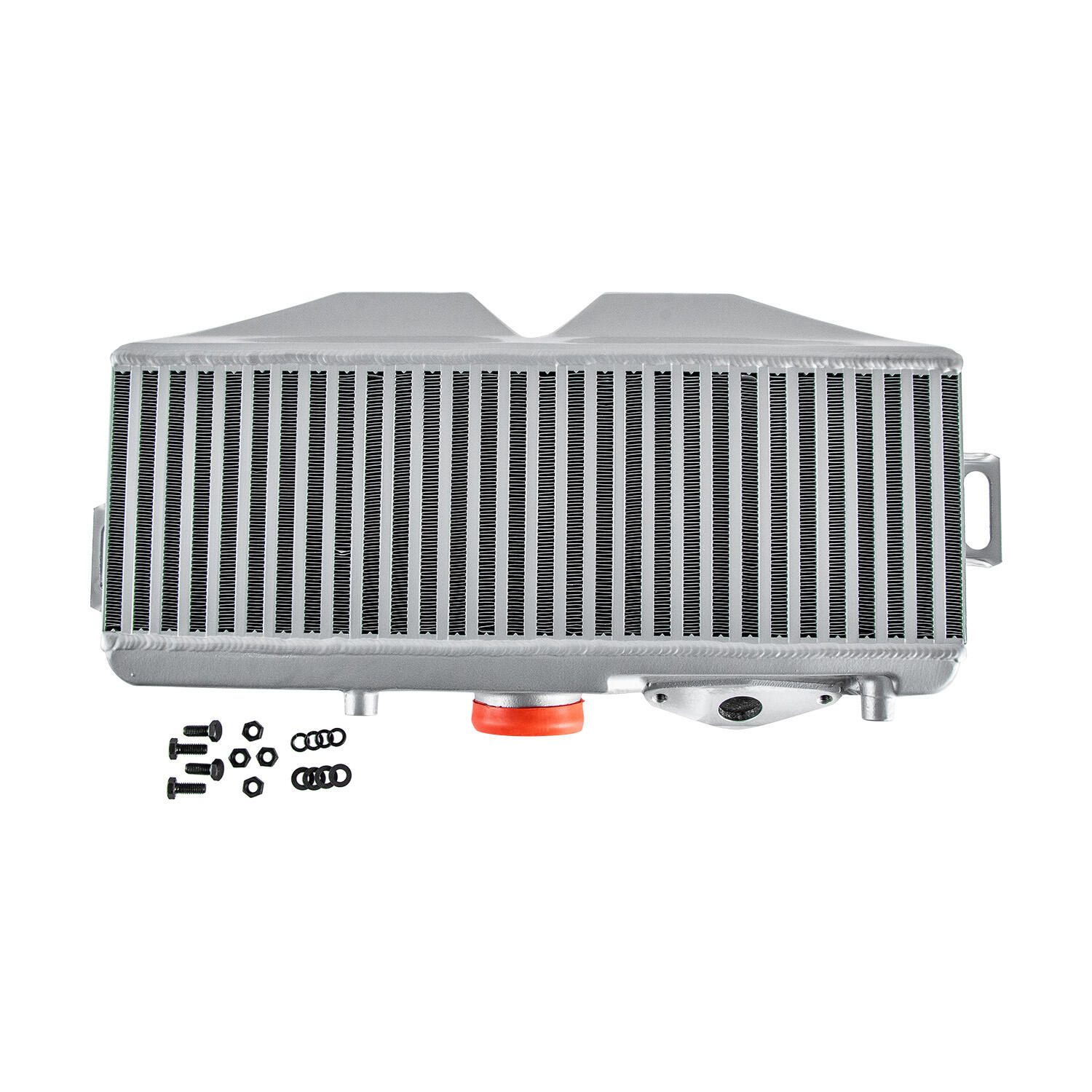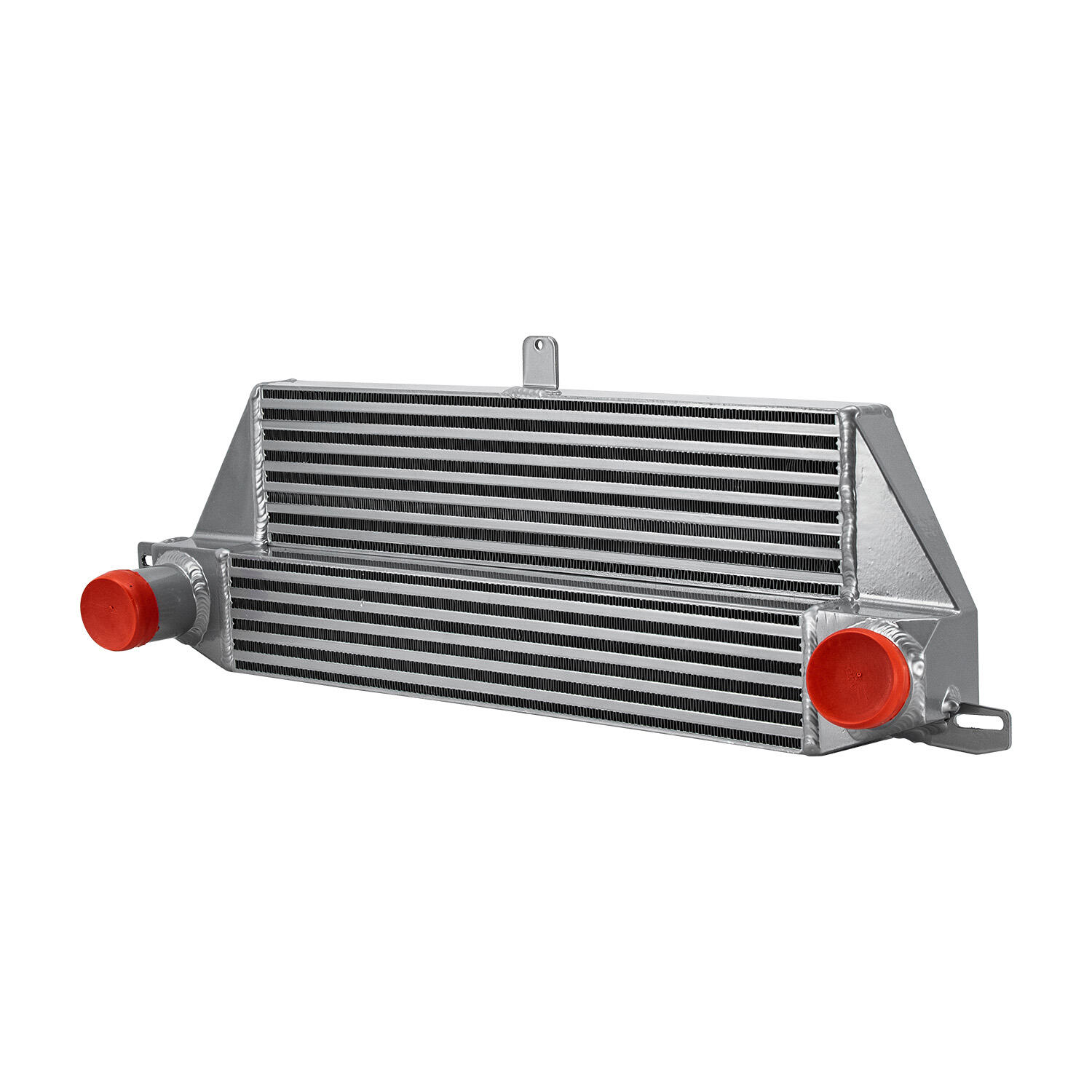Თანამედროვე ინტერქულერის მოვლის შესწავლა ძრავის მაქსიმალური სიმძლავრისთვის
Მაღალი სიმძლავრის მანქანების ევოლუცია გადაწყვეტილებულად აგრძელებს ინჟინერიის სრულყოფილების შესაძლებლობების გაფართოებას, ხოლო ამ მძლავრი მანქანების სიცოცხლის გულშემადგენელი კომპონენტია – ინტერკულერი . როგორც კი მიუახლოვდებით 2025 წელს, ინტერკულერის მოვლა მიმდინარეობს უფრო და უფრო სრულყოფილად, რაც მოითხოვს როგორც ტრადიციული, ასევე უახლესი მეთოდების ღრმა გაგებას. ეს შესაბამისი მიმართულება განიხილავს ინტერკულერის მაქსიმალურად ეფექტურად შენარჩუნების მნიშვნელოვან ასპექტებს, რათა დარწმუნდეთ, რომ თქვენი მანქანა შეინარჩუნებს სიმძლავრის მაქსიმალურ პოტენციალს.
Თანამედროვე ინტერკულერის სისტემები მნიშვნელოვნად განვითარდა, გამოიყენებენ დამატებით მასალებს და კონსტრუქციებს, რომლებიც სპეციალურ ყურადღებას მოითხოვენ. მიუხედავად იმისა, ტურბირებულ სპორტულ ავტომობილს მართავთ თუ მაღალი სიმძლავრის დიზელიან სატრანსპორტო საშუალებას, ინტერკულერის შესაბამისი მოვლა ძრავის ეფექტურობის შესანარჩუნებლად და ძვირადღირებული რემონტების თავიდან ასაცილებლად საჭიროა. მოდით შევხვდეთ ინტერკულერის მოვლის ამ ამაღლებულ სამყაროს და გამოვლინოთ, თუ როგორ შეგვიძლია მაქსიმალურად გავზარდოთ თქვენი ავტომობილის წარმატება.
Თანამედროვე ინტერკულერის ტექნოლოგიის გაგება
Მაღალი ხარისხის მასალები და დიზაინის ევოლუცია
2025 წლის მოდელი ინტერკულერის კონსტრუქციაში მოჰყავს შესანიშნავი განვითარება. მწარმოებლები ახლა იყენებენ ავიაკოსმოსური კლასის ალუმინის შენადნობებს და კომპოზიტურ მასალებს, რომლებიც უზრუნველყოფს უმჯობეს თბოგამტარობას მთლიანი წონის შემცირების დროს. ამ თანამედროვე კონსტრუქციებს გააჩნიათ ოპტიმიზებული ფინის სიხშირე და გაუმჯობესებული დინების მახასიათებლები, რაც უზრუნველყოფს უფრო ეფექტურ თბოგაცვლას და გაუმჯობესებულ რეაგირებას გადაცემის ყელში.
Უახლესი ინტერკულერის დიზაინები ასევე შეიცავს სმარტ მონიტორინგის სისტემებს, რომლებიც წარმოადგენენ სისტემის რეალურ დროში მიმდინარე მუშაობის მონაცემებს. ეს ინოვაციები საშუალებას აძლევს მძღოლებს ითვალისწინონ ინტერკულერის ეფექტიანობა და მიიღონ ადრეული გაფრთხილებები შესაძლო შემსრულების საჭიროების შესახებ, რაც ახალ დონეზე აყენებს ინტერკულერის მოვლის მიდგომას.
Სატრანსპორტო საშუალების მართვის სისტემებთან ინტეგრაცია
Თანამედროვე ინტერკულერები უკვე აღარ არის დამოუკიდებელი კომპონენტები, არამედ ინტეგრირებული ნაწილები საშენი ძრავის მართვის სისტემებში. ისინი ურთიერთქმედებენ რამდენიმე სენსორთან და კონტროლის მოდულებთან ერთად, რათა უწყვეტად ოპტიმიზირდეს ჰაერის საწოლის ტემპერატურა და წნევის მატება. ეს ინტეგრაცია კიდევ უფრო მნიშვნელოვნად აქცევს ინტერკულერის შესაბამის მოვლას, რადგან შესრულების პრობლემები შეიძლება ზეგავლენა იქონიოს ძრავის მართვის მთელ სისტემაზე.

Აუცილებელი შემსრულების პროცედურები
Რეგულარული შემოწმება და სატრიალე დისკების გასუფთავების პროცედურები
Პროფესიონალური ინტერკულერის მოვლა იწყება ხანგრძლივი ვიზუალური შემოწმებით. შეამოწმეთ გარეგნული დაზიანებები, დაუმაგრებელი შეერთებები და გაჟონვის ნიშნები ბოლო რეზერვუარების და მიმაგრების წერტილების გარშემო. გასუფთავების პროცესი უნდა იყოს მეთოდური, გამოიყენეთ შესაბამისი გასუფთავების საშუალებები, რომლებიც არ ზიანებს ნაზ გაგრილების ფირფიტებს ან დამცავ საფარს.
Თანამედროვე ინტერკულერები სარგებლობენ სპეციალიზებული გასუფთავების ტექნიკებით, რომლებიც ახდენენ ფირფიტების დაზიანების თავიდან აცილებას და უზრუნველყოფენ ნაგვისა და მავნე ნივთიერებების სრულ ამოშლას. გამოიყენეთ დაბალი წნევის ჰაერი და სპეციალური ინტერკულერის გასუფთავების საშუალებები, რათა შეინარჩუნოთ ოპტიმალური სითბოს გაცვლის ეფექტურობა კომპონენტების დაზიანების რისკის გარეშე.
Შესრულების ტესტირება და დიაგნოსტიკა
Ინტერკულერის ეფექტურობის შესანარჩუნებლად მნიშვნელოვანია რეგულარული შესრულების ტესტირება. თანამედროვე დიაგნოსტიკური ინსტრუმენტები შეუძლიათ გაზომონ წნევის დაქვეითება ინტერკულერის გასწვრივ, შესასვლელი ჰაერის ტემპერატურა და სისტემის მთლიანი შესრულება. ეს გაზომვები დაგეხმარებათ პოტენციური პრობლემების დროულად გამოვლენაში, სანამ ისინი მნიშვნელოვან პრობლემებამდე მიიყვანენ.
Განახორციელეთ წესიერი ტესტირების გრაფიკი, რომელიც შეიცავს წნევის ტესტირებას, თერმულ ვიზუალიზაციას და სითხის დინების სიჩქარის ანალიზს. ეს დიაგნოსტიკური პროცედურები ხელს უწყობს ინტერკულერის მაქსიმალური მუშაობის შენარჩუნებას და თავიდან აცილებს ეფექტიანობის დაკარგვას, რაც შეიძლება გავლენა იქონიოს ძრავის მუშაობაზე.
Პროფილაქტიკური დახმარების სტრატეგიები
Გარემოს დაცვის ზომები
Ინტერკულერის დაცვა გარემოს ფაქტორებისგან მნიშვნელოვანია მისი გრძელვადიანი საიმედოობისთვის. დაამონტაჟეთ მაღალი ხარისხის დამცავი ბადეები ნარჩენების შეჯახების თავიდან ასაცილებლად და განვიხილეთ დამატებითი დაცვა მკაცრ გარემოში. კოროზიის ინჰიბიტორების წესიერი გამოყენება შეიძლება გააგრძელოს ალუმინის კომპონენტების სიცოცხლე და თავიდან აიცილოს მიმაგრების აღჭურვილობის დეგრადაცია.
Კლიმატის მიხედვით მორგებული შემსხვილების კორექტირება აუცილებელია ინტერკულერის ოპტიმალური მუშაობისთვის. სანაპირო ზონებში გაზარდეთ შემოწმების სიხშირე მარილით გამოწვეული კოროზიის შესამოწმებლად. მტვრიან რეგიონებში განაახლეთ ჰაერის ფილტრაციის სისტემები და უფრო ხშირად გაასუფთავეთ ნაწილაკების დაგროვების თავიდან ასაცილებლად.
Შესრულების მონიტორინგის სისტემები
Თანამედროვე სატრანსპორტო საშუალებები, რომლებიც აღჭურვილი არის გაუმჯობესებული მონიტორინგის სისტემებით, ინტერკულერის მუშაობის შესახებ მნიშვნელოვან ინფორმაციას აწვდიან. ისწავლეთ ამ მონაცემების წაკითხვა და შექმენით საწყისი საზომი მაჩვენებლები. მუდმივი მონიტორინგი ხელს უწყობს დროულად აღმოაჩინოთ მცირე ეფექტურობის დაკარგვა, რაც შეიძლება დაუნახავად დარჩეს, სანამ მნიშვნელოვანი პრობლემები არ წარმოიქმნება.
Დამატებითი მომსახურების ტექნიკა
Პროფესიონალური სერვისის პროცედურები
Პროფესიონალური ინტერკულერის მოვლა ხშირად ითვალისწინებს სპეციალიზებული მოწყობილობებისა და ტექნიკის გამოყენებას. წნევის ტესტირება უნდა შესრულდეს კალიბრებული მოწყობილობებით, რათა აღმოჩნდეს უმცირესი წნევის დაქვეითებაც კი. თერმული ვიზუალიზაცია ხელს უწყობს ცხელი წერტილების ან ნაკადის შეზღუდვების გამოვლენაში, რაც ზეგავლენას ახდენს მუშაობაზე. ამ გაუმჯობესებულ პროცედურებს საჭირო აქვთ შესაბამისი მომზადება და მოწყობილობები, თუმცა ისინი სისტემის მდგომარეობის შესახებ მნიშვნელოვან ინსაიტებს აწვდიან.
Გაითვალისწინეთ პერიოდული პროფესიონალური გაწმენდის სერვისები, რომლებიც იყენებენ სპეციალიზებულ მოწყობილობებს შიდა ნალექების მოსაშორებლად, რისკის გარეშე ნაზი კომპონენტების დაზიანების. ამგვარი სერვისები შეიძლება აღადგინოს ინტერკულერის ეფექტურობა თითქმის ახალი დონის მდგომარეობამდე, თუ ისინი სწორად იქნება შესრულებული.
Შესაბამისობის ოპტიმიზაციის მეთოდები
Ძირეული მოვლის გარდა, რამდენიმე არსებითი მეთოდი შეიძლება გაუმჯობინოს ინტერკულერის მუშაობა. სწორად შერჩეული და განლაგებული საწოლები ამცირებს წნევის დაქვეითებას და აუმჯობესებს ჰაერის ნაკადს. სენსორებისა და აქტუატორების რეგულარული კალიბრაცია უზრუნველყოფს სისტემის იდეალურ მუშაობას. განიხილეთ მიმაგრების აღჭურვილობის გაუმჯობესება, რათა შეამციროთ ვიბრაცია და თავიდან აიცილოთ დატვირთვით გამოწვეული გაუმართაობები.
Ხშირად დასმული კითხვები
Რამდენი ხანში უნდა შესრულდეს ინტერკულერის მოვლა 2025 წლის მოდელებზე?
2025 წლის მაღალი შესაბამისობის მოდელებისთვის, დაგეგმეთ ინტერკულერის ძირეული მოვლა ყოველ 15,000 მილზე ან წელიწადში ერთხელ, იმისდა მიხედვით, რომელი მოვა პირველ რიგში. თუმცა, რთულ პირობებში ექსპლუატაციაში მყოფი ავტომობილები შეიძლება მოითხოვონ უფრო ხშირი მოვლა. პროფესიონალური შემოწმება უნდა ჩატარდეს წელიწადში მინიმუმ ორჯერ, იდეალური შესაბამისობის უზრუნველსაყოფად.
Რა ნიშნები მიუთითებს ინტერკულერის შესაბამისობის გაუარესებაზე?
Მიაქციეთ ყურადღება ძრავის სიმძლავრის შემცირებას, შესასვლელი ჰაერის ტემპერატურის მომატებას, განსხვავებულ ტურბინის წნევის მაჩვენებლებს და გარეთა ფინების ან კორპუსის ხილულ ზიანს. თანამედროვე ავტომობილები ასევე შეიძლება გამოაქვეყნონ გაფრთხილების შეტყობინებები ძრავის მართვის სისტემის მეშვეობით, როდესაც ინტერკულერის ეფექტიანობა ეფექტური დონის ქვემოთ ეცემა.
Შემიძლია თუ არა ინტერკულერის მოვლა ჩავატარო მთავარი ?
Გარე გაწმენდა და ვიზუალური შემოწმება მსგავსი საბაზისო მოვლის მომსახურებები შეგიძლიათ სახლის პირობებში შეასრულოთ. თუმცა, წნევის ტესტირება, შიდა გაწმენდა და სისტემის ოპტიმიზაცია უნდა დაევალოთ კვალიფიციურ სპეციალისტებს, რომლებსაც აქვთ შესაბამისი მოწყობილობები და გამოცდილება.

